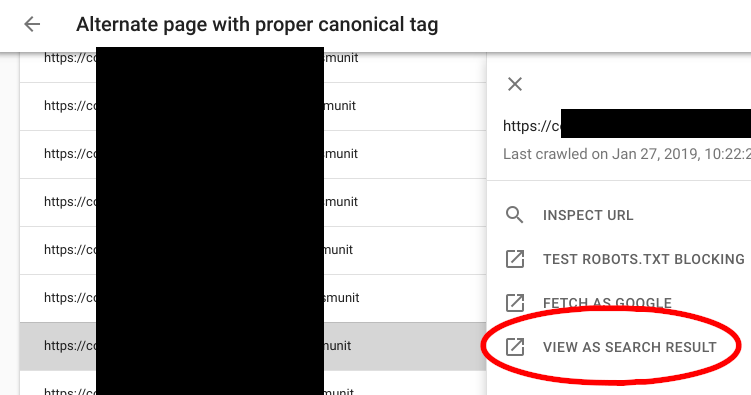Google's new webmaster tools has a section 'Index coverage'>'Excluded'>'Submitted URL not selected as canonical'. I am getting 3 internal links in the section "Submitted URL not selected as canonical" of my website.
am not sure why these internal links are showing up there. I had updated canonical tags for these 3 links. (I am not sharing links cause may be my account marked as spam)
Google's help page has some information about it, but doesn't say how to fix it:
Submitted URL not selected as canonical: The URL is one of a set of duplicate URLs without an explicitly marked canonical page. You explicitly asked this URL to be indexed, but because it is a duplicate, and Google thinks that another URL is a better candidate for canonical, Google did not index this URL. Instead, we indexed the canonical that we selected. The difference between this status and "Google chose different canonical than user" is that, in this case, you explicitly requested indexing.

